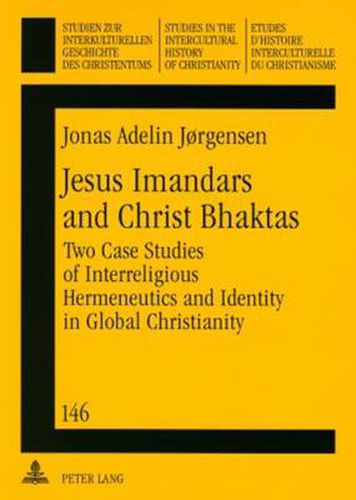Readings Newsletter
Become a Readings Member to make your shopping experience even easier.
Sign in or sign up for free!
You’re not far away from qualifying for FREE standard shipping within Australia
You’ve qualified for FREE standard shipping within Australia
The cart is loading…






The massive changes of Christianity during the 20th century raise the perennial question about its identity in a new, radical form. The author addresses the question of identity and asks how globalisation, religious pluralism, and the polycentric nature of Christianity affect Christian self-identification and theological reflection. First, religious life and theological reflection among believers in Jesus from Muslim and Hindu background in South Asia is presented in two empirical studies. Secondly, the findings are analysed and interpreted within a broad theoretical framework, drawing on models for syncretistic processes from history of religions, cultural anthropology, and Christian theology. Finally, the study concludes with a systematic-theological perspective on the interreligious hermeneutics underlying the changes of Christianity and discusses how interreligious hermeneutics might inform missiology as well as Christian theologies of religions and how this might challenge our understanding of the church’s nature and mission. In conclusion, it is argued that a global, polycentric Christianity can be interpreted as fellowship created by the Spirit and centred on Christ.
$9.00 standard shipping within Australia
FREE standard shipping within Australia for orders over $100.00
Express & International shipping calculated at checkout
The massive changes of Christianity during the 20th century raise the perennial question about its identity in a new, radical form. The author addresses the question of identity and asks how globalisation, religious pluralism, and the polycentric nature of Christianity affect Christian self-identification and theological reflection. First, religious life and theological reflection among believers in Jesus from Muslim and Hindu background in South Asia is presented in two empirical studies. Secondly, the findings are analysed and interpreted within a broad theoretical framework, drawing on models for syncretistic processes from history of religions, cultural anthropology, and Christian theology. Finally, the study concludes with a systematic-theological perspective on the interreligious hermeneutics underlying the changes of Christianity and discusses how interreligious hermeneutics might inform missiology as well as Christian theologies of religions and how this might challenge our understanding of the church’s nature and mission. In conclusion, it is argued that a global, polycentric Christianity can be interpreted as fellowship created by the Spirit and centred on Christ.